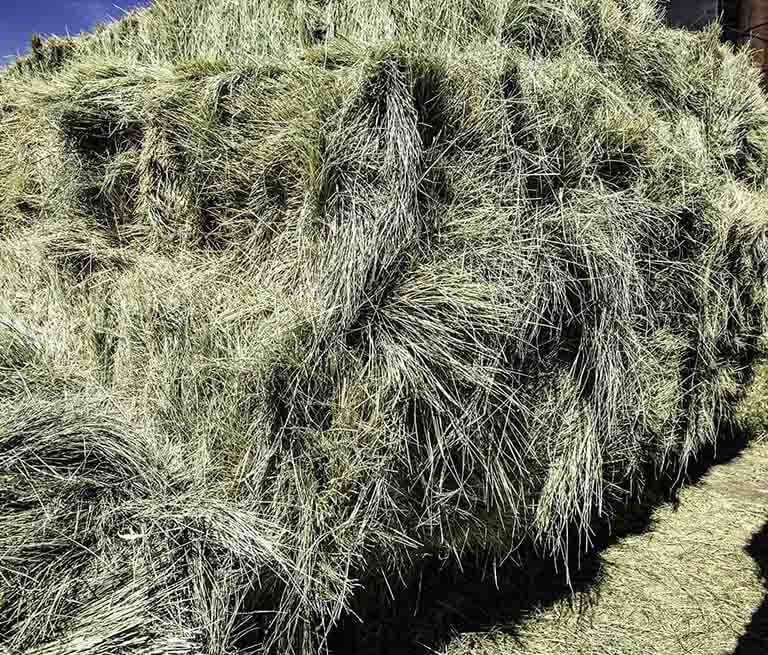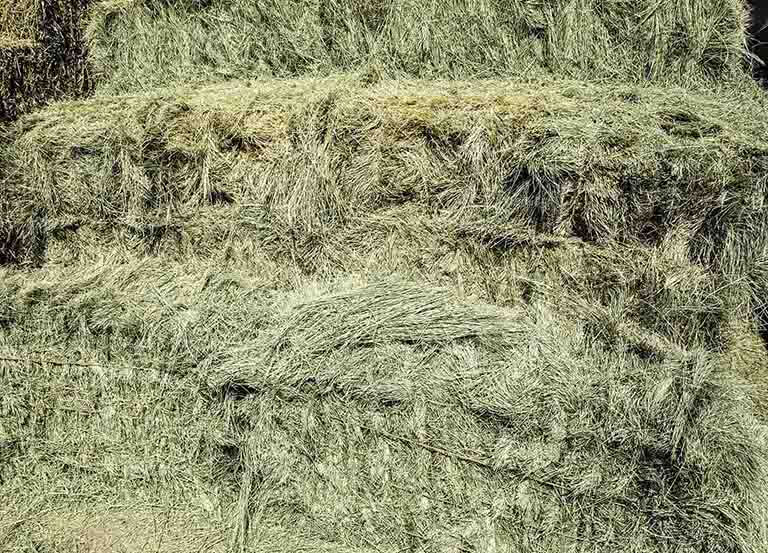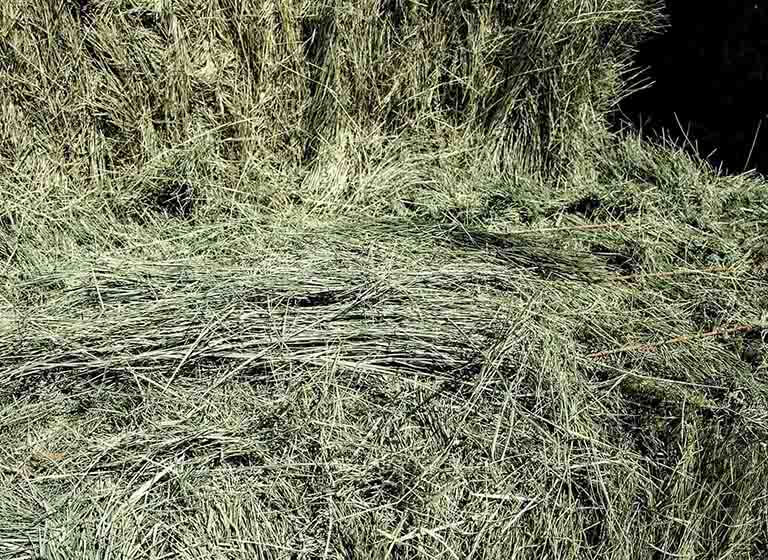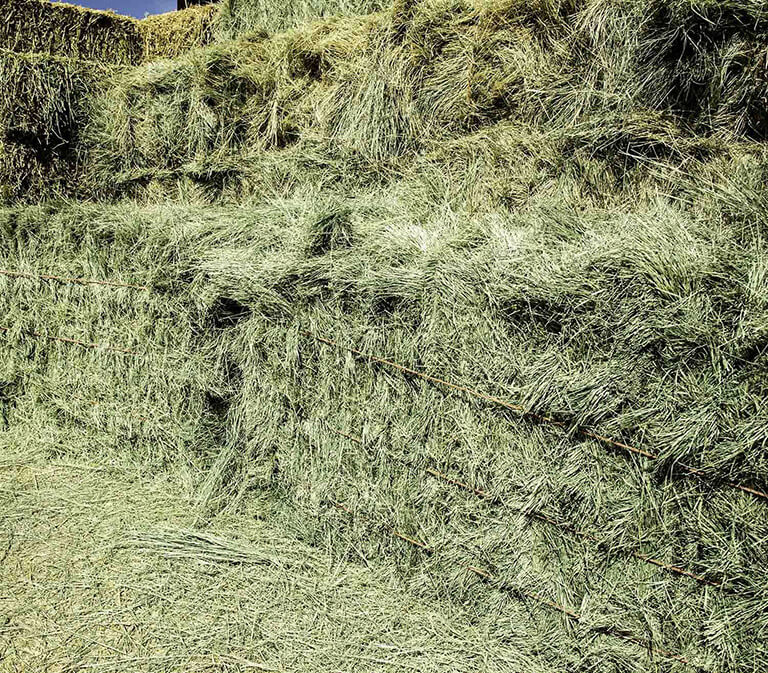We have the lowest delivery fees

Is Bermuda Hay Good for Horses?
Grass or hay is the basis of a horse’s diet. Hay provides an excellent dietary solution when your horses cannot go outside for grazing on the pasture. Thus, in the winter months, when pasture is not available, or when it becomes low quality due to drought or other conditions, hay provides optimal amounts of calories and nutrients to support horses. Among many types of hay you can choose from, let’s find out more about Bermuda hay for horses. Is it a good horse feed, and what types of horses would benefit from it the most?

What Is Bermuda Hay?
Bermuda hay for horses is a common warm-season grass hay in the South of the United States. For hay, coastal grass is used, because its common counterpart does not reach the needed height. This hay is typically a good and less expensive alternative to orchard or timothy hay grass hay. It is also lower in nutritional value but has good amounts of vitamins A and D, calcium, and phosphorous. For horses with high protein needs, Bermuda hay is not the best option. It has a rather low protein content compared to, for instance, alfalfa hay. If Bermuda grass is harvested in a mature state, it also becomes harder to digest. This is because of an increase in fiber with its maturity.
Apart from Bermuda, there are other types of grass hay, such as orchard, timothy, prairie, and reed canary grass during the cool season, and bahiagrass during the warm season. Unlike cool-season grasses, Bermuda hay is lower in protein but higher in fiber. Typically, horse owners mix grass and legume hay so that their animals get varied nutritional content. Usually, it is 60% to 40% of grass to legume or legume to grass ratio. This can help improve digestion and, at the same time, provide a good mix of protein and fiber.
Selecting hay for your horses is not an easy matter, but you as the owner know best what your animals need. Digestive systems of horses adapted to eating various types of forage so that the majority can maintain good health on such diets. The main goal when it comes to choosing hay should be matching the feed with the nutritional requirements of horses. To do that, you need to consider species and level of maturity of hay before making a decision.

Tips for Feeding Horses
Bermuda hay is a nutritious option that you can use for feeding your horses. For horses in training and back yard horses, Bermuda hay, in combination with alfalfa, will promote their optimal health. Apart from that, you can also feed Bermuda hay to overweight, foundered horses, and horses that do not need a diet rich in protein and calcium. If horses are staying in stables all the time and do not exercise, then Bermuda hay can help maintain their nutrition and health. This type of hay is not recommended for horses who struggle to gain weight.
Using Bermuda hay in feed is ideal for helping your animals feel full and also get adequate nutrition in their diet. Even though it is lower in calcium and protein compared to, for example, alfalfa hay, it still meets the dietary needs of most horses. Because of its more moderate nutritional content, Bermuda hay can be a good filler in the feed. So you can mix it in with more protein and calcium-rich types of hay. However, it does have more carbs than hay from legumes, which means it should not be given to horses that gain weight easily or have laminitis.
Mixing Hay
When you mix Bermuda hay with legume hay, then the nutritional content of the feed will be more balanced. Thus, it can be fed to different types of horses with various dietary needs. Apart from that, mixing hay makes it harder for horses to try and pick tasty portions, so they eat everything they are given. If you see that your horses enjoy eating Bermuda hay or mixed hay, that means your choice of hay was good. Keep in mind though that any hay might not be enough to provide optimal vitamin and nutrient content, depending on its origins.

Problems with Bermuda Hay
Not everything is great when it comes to Bermuda hay for horses. Some horse owners avoid it because they believe it can cause colic in the animals. Is it true? It is hard to say because some believe it does, and then some do not. Despite the answer being unclear, there are facts about Bermuda that could help you decide whether you should choose it.
Bermuda grass is associated with ileocecal colic, a type of colic that is not common in horses. However, it is hard to treat if it develops. The most common trigger for this colic is dehydration. So if your horses do not have constant access to drinking water or they expend a lot of energy without hydrating properly, then they have a bigger chance to have the colic. Moreover, even though Bermuda hay for horses provides high-quality nutrition, it is still rather hard to digest, unlike alfalfa hay, for example. As a result, rapidly introducing Bermuda hay to the diet could lead to digestive problems.
Mature Bermuda hay is the hardest to digest. So choose the younger cuts for your horses if they have not eaten this type of hay before. After a few weeks of feeding your horses Bermuda hay, you will see whether they develop digestive problems. So check on them regularly during this introduction period. Overall, if you approach this the right way, there should be no problem with your animals eating Bermuda hay. Provide enough water and, in the beginning, mix a little with alfalfa and other types of hay for better results.


Leave a comment